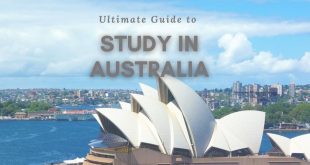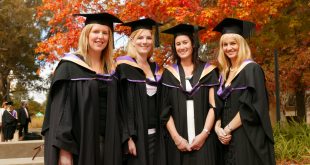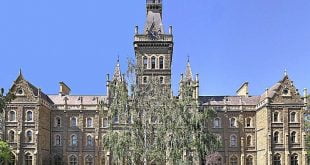It’s not uncommon for international students to work part-time while they study in Australia. Not only, it’s a great way to make extra-money to cover the fairly high living cost in the country, but also a means to gain work experience, develop some essential skills as well as getting a taste of the local culture. There are certainly more good reasons but all we say is that working during your studies in Australia would only be beneficial to make your stay unique and memorable.
But you’re not going to find a job right away upon your arrival in Australia. Let alone get an employment that will fit perfectly your school schedule or fill up the hole in your student budget. We will address some of the most important questions related to student work in Australia. Read on to find out what to expect.
Learn about the living and study cost in Australia.
Table of Contents
How many hours can students work and study in Australia?
As a matter of fact, Australia is a fantastic place for an international student to work and study at the same time. More precisely, you can work up to 40 hours every 2 weeks during the academic year and full-time during holiday breaks.
What is more appealing about this option is that students get access to the same work place protection as any worker in Australia. This includes those related to health and safety on the workplace.
Moreover, you can get breaks in between shifts and leave, and these are stated in your work contract. Add to that all the support you can get as a student whether it is from the Australian government, or your university or private organizations.
Furthermore, no matter the type of job you do, you are entitled to at least a minimum rate of pay per hour. And your employer must have an insurance that protects you in case something happens to you at your workplace. It’s the Worker’s Compensation, which can pay for any medical treatment or your salary for the days you’re not able to work.
How much can a student earn in Australia while studying?
In Australia, every business must pay their employees, including international students, based on a fixed minimum wage. And the current minimum wage is $21.38 per hour. And if an employer offers to pay less than this amount, they are breaking the law.
Moreover, international students are also eligible for what is called superannuation. It’s an amount of money that your employer set aside over your working life that will serve you as a retirement fund.
And lastly, if you work and study in Australia, you have to register for a tax file number. This is a personal reference number that you’ll use to file tax reports and other government documents. You can apply for it at the Australia Taxation Office (ATO)
Usually, wages are paid in cash. And the employer must present a pay stub detailing the salary, along with the tax withheld, the contribution to superannuation as well as the number of hours you have worked.
Work and study visa in Australia
Work and study in Australia is a popular occurrence. And usually, you don’t need to apply for a special work permission with your student visa application to be able to work in Australia. In fact, working limits are set by the Australian Government and you automatically get the right to work.
The only thing you need to pay attention to is the start date of your courses at your university or college. To avoid falling into illegality, make sure to start working only once school has started.
Types of part-time work for students in Australia
The main reason international students work part-time while they study in Australia is that it contributes to cover their living expenses. But it also comes with other bonuses such as the fact that it can help you improve your fluency in English and develop other important skills.
While still in school, you can already improve your verbal communication, leadership, time management or team work abilities as you work part-time in Australia. And this is possible even if you work in a field that is not related to your area of study. Plus, the flexible hours make this option perfect for students.
Here are the most common part-time employment opportunities you can check out:
- Administration and clerical jobs
- Farming and fruit-picking: more of a seasonal job
- Hospitality, working at cafés, restaurants
- Retail: working in supermarkets, boutiques or department stores
- Sales and telemarketing
- Services: delivery, childcare…
- Tutoring or giving foreign language courses
Work and study in Australia: internship and volunteering
Another way to expand your work experience while you study in Australia is to undertake internship and volunteering.
Internship
Along with a regular part-time work, holders of a student visa are allowed to undertake paid and unpaid internships in Australia. The good news is many states and cities in Australia set up and manage internship programs as well as student entrepreneurship programs to get students to start their own business.
Moreover, internships help students get a work experience in their field of study, which will prove very worthwhile for employers. This is also a great way to highlight your ambition and build a professional network while still studying.
Volunteering
The other option to get hands-on experience in the professional field is to do volunteer work at charities and non-government organizations. Volunteering will help you develop valuable soft skills as it will lead you to interact a lot with locals. You can work as event or social media coordinator, driver, do administration tasks, and more.
You can start by browsing platforms such as govolunteer.com.au. Moreover, you can check each state and territory’s volunteering centers in Australia to find out if they have something that may pique your interest. For example, for Queensland, you can check the website Volunteeringqld.org.au; or if you live in the Australian Capital Territory, you can consult Volunteeringact.org.au.
Is it hard for international students to get a job in Australia?
This depends on the job position you are looking for and the approach you use for your research. But overall, it shouldn’t be very difficult to find the right student job in Australia. Keep also in mind that there are more employment opportunities in big cities such as Melbourne or Sydney.
To give yourself the best chances, start by preparing well. This means, a resume that is conformed to Australian standards, with some references any potential employers can contact. If you need to undergo some training, then do it well.
Moreover, make sure all your paperwork are in order. For your job application, you’ll need beforehand a Tax File Number, a bank account, and of course a CV in English. The best places to search for a part-time work include: the word of mouth, the bulletin board of your university or college, and the alumni group at your school.
But you can also check online employment platforms or even social medias. The most common job search platforms in Australia include: Seek.com.au, Career One or Adzuna.
Can international students work in Australia after graduation?
The answer is yes, but you’ll need to apply for a temporary work visa before the expiration of your student visa. It’s what is called Temporary Graduate Visa, subclass 485, which you can apply for if you have completed a bachelor’s, master’s or PhD degree in Australia. This visa is valid between 18 months and 4 years.
The other options include seeking approval to stay in Australia as a professional worker. For that you need to have an “Expression of Interest” that you submit through the SkillSelect platform of the Australian Government. Lastly, you can apply to a nomination for a skilled and business immigration.
Find out more on the subject in our guide on how to work in Australia after your studies.
This post is also available in fr_FR.




 Aljawaz Your guide to study abroad
Aljawaz Your guide to study abroad













